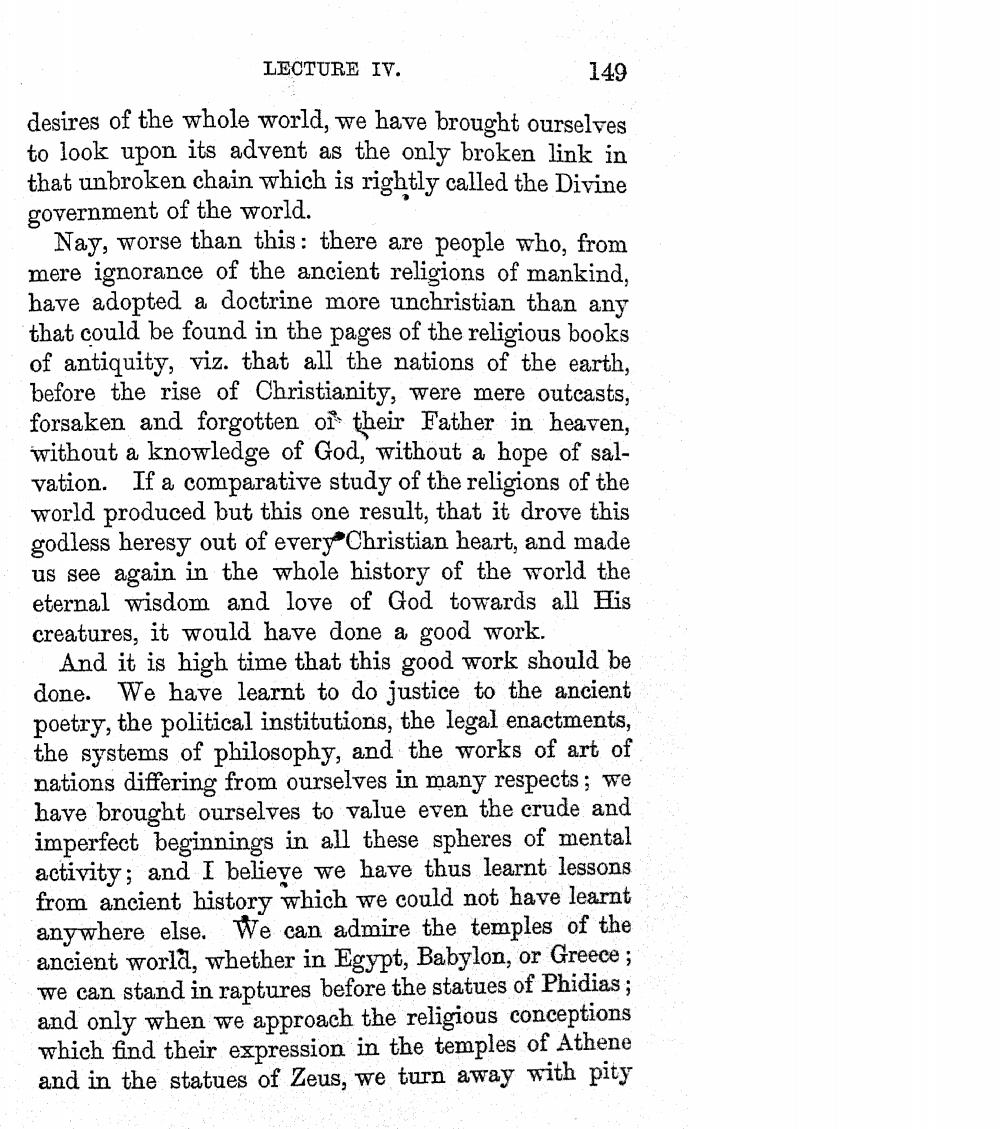________________
LECTURE IV.
149 desires of the whole world, we have brought ourselves to look upon its advent as the only broken link in that unbroken chain which is rightly called the Divine government of the world.
Nay, worse than this: there are people who, from mere ignorance of the ancient religions of mankind, have adopted a doctrine more unchristian than any that could be found in the pages of the religious books of antiquity, viz. that all the nations of the earth, before the rise of Christianity, were mere outcasts forsaken and forgotten ois their Father in heaven, without a knowledge of God, without a hope of salvation. If a comparative study of the religions of the world produced but this one result, that it drove this godless heresy out of every Christian heart, and made us see again in the whole history of the world the eternal wisdom and love of God towards all His creatures, it would have done a good work.
And it is high time that this good work should be done. We have learnt to do justice to the ancient poetry, the political institutions, the legal enactments, the systems of philosophy, and the works of art of nations differing from ourselves in many respects; we have brought ourselves to value even the crude and imperfect beginnings in all these spheres of mental activity; and I believe we have thus learnt lessons from ancient history which we could not have learnt anywhere else. We can admire the temples of the ancient world, whether in Egypt, Babylon, or Greece ; we can stand in raptures before the statues of Phidias; and only when we approach the religious conceptions which find their expression in the temples of Athene and in the statues of Zeus, we turn away with pity




